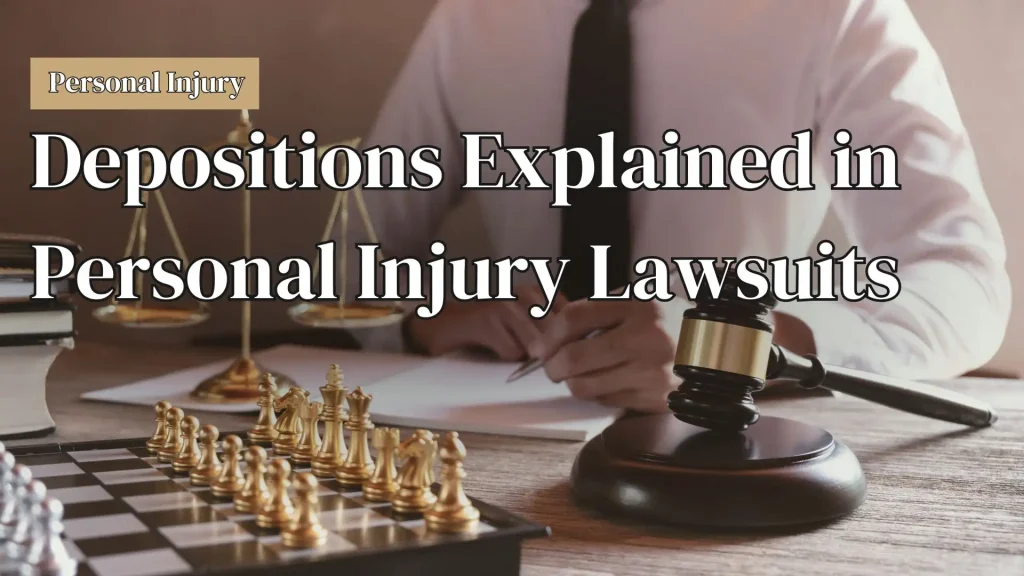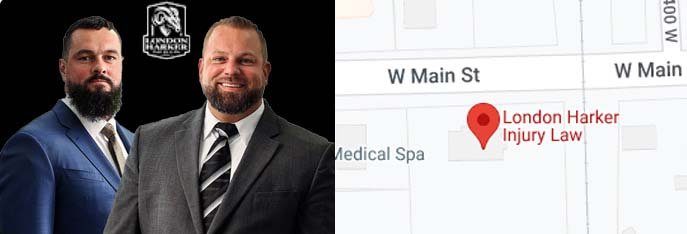Posted on Sunday, July 21st, 2024 at 9:00 am

Have you been hurt in an accident someone else caused? If so, you might need to pursue a lawsuit against that person to recover the money you need for your medical care, lost wages, and pain and suffering. A critical part of the lawsuit process is the deposition. Here’s what you need to know to prepare yourself appropriately for a personal injury deposition in your case.
What Is a Deposition?
Depositions are an important part of the discovery process in which a deponent answers questions under oath. They serve as a crucial tool for gathering evidence, assessing witness credibility, and shaping case strategy. Some believe that they are the most important discovery tool.
Depositions serve many purposes. First, they allow attorneys to observe the witness’s demeanor, body language, and overall credibility firsthand. This can help them evaluate how effective the witness might be at trial and whether their testimony is reliable.
Second, whatever is said at the deposition can be used to challenge a witness’s credibility if trial testimony contradicts deposition testimony. In other words, to some extent, deposition testimony locks in what a witness can say and retain credibility.
Third, depositions help attorneys determine both sides’ strengths and weaknesses, which influences settlement negotiations, potentially leading to a favorable resolution without going to trial. If a witness really messes up or says something that contradicts the pleadings, there may be a rush to settle.
Setting the Stage for the Deposition
A personal injury deposition can be held anywhere, but it is usually held in a conference room, often in the conference room of one of the law firms. A deposition can also be held remotely. Unlike a trial, a deposition is not held in a courtroom.
How long will a deposition take? The duration can vary wildly, from brief, focused examinations to extensive, day-long interrogations. Factors such as the case’s complexity, the importance of the witness’s testimony, and the attorneys’ strategies influence how much time is spent under oath. However, under Utah law, unless the court decrees or the parties agree otherwise, a deposition cannot exceed seven hours for parties (the plaintiff and the defendant) and four hours for non-parties.
What Happens in a Deposition?
What is the deposition process for settlement? Now that you know what a deposition is, here’s a closer look at what you can expect when you serve as the deponent.
When you walk in for the deposition, you will see a court reporter. The court reporter will record your testimony, which you can later use as evidence in court. At the start of the deposition, they will also administer the oath, affirming that your testimony will be truthful. Attorneys from both sides will also be present. In some situations, a videographer might be present to record the deposition. There is no judge or jury present during a deposition.
Here’s how your deposition will likely unfold. First, you will provide background information such as your name, residence, birth date, and other identifying details, as well as your medical history. Then, depending on the case, they may ask about your work history, including employment details, responsibilities, and earnings. In a personal injury case, you will discuss past injuries, medical conditions, and treatments.
You will answer questions about the circumstances before, during, and after the incident. Additionally, you will provide a comprehensive description of your injuries, symptoms, and their impact on your life. They will also ask for information about the healthcare providers you’ve consulted, treatments you’ve undergone, and any related medical costs you’ve incurred.
You will describe how the injuries have hindered your ability to perform daily tasks and work, as well as the psychological consequences like stress, anxiety, and depression. Another likely topic is loss of earnings, increased expenses, and any financial difficulties resulting from the incident.
Things to Keep in Mind During Your Deposition
Now that you know what a deposition is and how it plays out, it’s time to start preparing. Your attorney will equip you with the tools to maintain composure, deliver clear answers, and protect your interests.
With that in mind, your lawyer will help you act out the deposition beforehand. Along with reviewing all the important documents and details of your case with your Sandy, UT, personal injury lawyer, you can participate in practice depositions. This helps you get comfortable with the process and fine-tune your answers. It’s a great way to stay calm and collected, even if the types of questions get tough or aggressive.
Remember, you can make corrections after the deposition. You’ll have the chance to review the transcript to ensure its accuracy. If there are any mistakes or you wish to make clarifications, you can ask for changes. Keep in mind that these are usually minor changes – to change an answer completely, you need a credible reason. It’s essential to consult with your attorney before making any modifications.
Tips for Acing Your Deposition

Preparing for a deposition can be intimidating, but with the right approach, you can handle it confidently. You have the opportunity to provide your testimony during a deposition, so preparing well is essential. Here are some tips to help ensure a successful deposition:
- Understand the Legal Process: Familiarize yourself with what to expect during the deposition.
- Review Key Facts – Review all relevant documents and details related to the case to refresh your memory.
- Practice Answering Questions – Work with your attorney to practice answering potential questions.
- Dress Appropriately – Wear professional attire to convey seriousness and respect.
- Stay Focused – Keep your attention on the questions asked and avoid unnecessary distractions.
- Be Precise – Answer only the question asked without volunteering extra information.
- Maintain Neutrality – Avoid expressing opinions or emotions related to the case.
- Ask for Clarification – If you don’t understand a question, request clarification before answering.
- Consult Your Lawyer – Don’t hesitate to consult your attorney if you are unsure about answering a question.
Trust a Utah Personal Injury Attorney to Help You Prepare for Your Deposition
By getting a good grasp of the deposition process and thoroughly preparing with your attorney, you’ll be able to tackle this important part of your personal injury lawsuit confidently.
Ready to assert your rights and demand compensation for what you’ve suffered? With years of experience, London Harker Injury Law is ready to stand by your side in your dire need for legal guidance. Call our firm today at 77CARCRASH or use our online form to get the knowledgeable representation you deserve.
Related Posts:
Lost Wages Compensation After a Car Accident
Preparing for Your Consultation With a Personal Injury Lawyer



